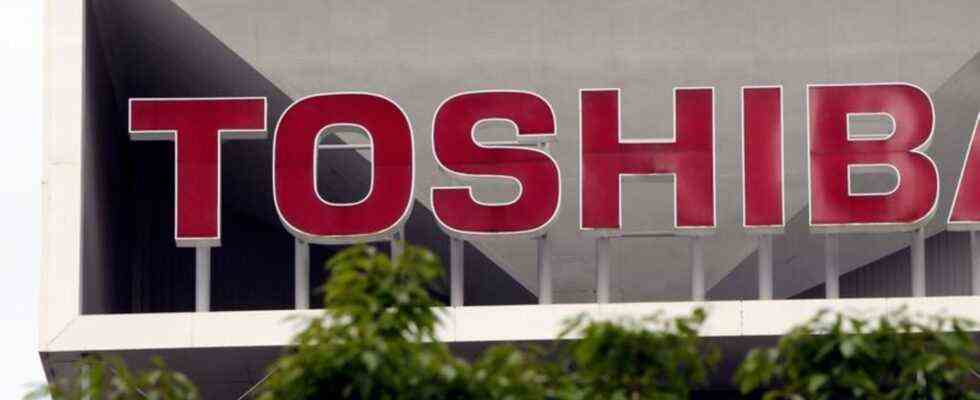Electronics company
Toshiba splits into three companies
The headquarters of electronics manufacturer Toshiba in Tokyo. Photo: Koji Sasahara / AP / dpa
© dpa-infocom GmbH
After the US partner General Electric, the traditional Japanese company Toshiba is now also breaking up itself. The goal is more transparency and efficiency.
The Japanese technology giant Toshiba wants to split into three listed companies. The long-established company announced this on Friday.
Under strong pressure from foreign shareholders, the group, which has been stumbling for a long time, hopes to use this step, unprecedented for Japan, to strengthen profitability in key areas in the future. The corporate giant, founded in 1875, is one of the best-known names in the Japanese economy. However, the disastrous foray into the US nuclear power business and a balance sheet scandal brought Toshiba to the brink of the abyss in the middle of the last decade.
As part of a medium-term business plan, the area for infrastructure and electronic products is to be spun off into separate companies. Toshiba would then remain the semiconductor memory business. Just a few days ago, the US industrial group General Electric (GE) announced that it would also split into three companies. GE and Toshiba have long been partners and cooperate in areas such as offshore wind turbines. At General Electric, companies for aviation, medicine and another company are to be created in the future, which will cover the business of renewable energies, energy generation and digitization.
With the split, which is now also planned at Toshiba, the Japanese corporate conglomerate is responding to growing demands from activist shareholders for transparency and efficiency. In June, an independent investigative body found that Toshiba managers were collaborating with the Department of Economy, Trade and Industry (METI) to prevent foreign shareholders from influencing the board of directors by sending directors. Two top managers then had to vacate their posts. CEO Satoshi Tsunakawa had justified the relationship with METI with the fact that Toshiba’s business is important for the national security of Japan. Toshiba went “too far”, however.
Most of the shares in the hands of foreign shareholders
Foreign shareholders hold a large part of the shares in Toshiba. In a report presented on Friday, the group admitted that while top managers like former CEO Nobuaki Kurumatani have violated business ethics by kinking with the powerful industry ministry, they have not violated any laws. Toshiba has been accused of being overly dependent on the METI and having excessive reservations about overseas mutual funds. Kurumatani abruptly resigned in April in connection with internal disputes over a multi-billion dollar takeover bid by British financial investor CVC Capital Partners.
Toshiba currently consists of seven corporate groups, including one for infrastructure such as public transportation systems, an energy division for the construction of heating and nuclear power plants and an electronics unit that produces hard drives and semiconductors. Toshiba plans to complete the listing of the two spin-off companies in the second half of fiscal year 2023 (by March 31). The remaining Toshiba group would then have a stake in the semiconductor company Kioxia Holdings of around 40 percent.

